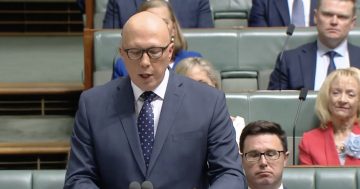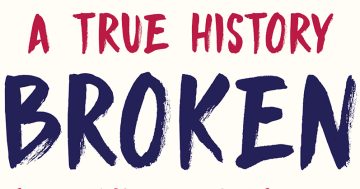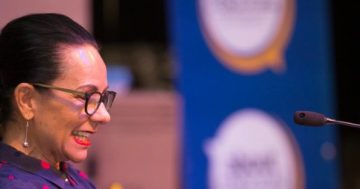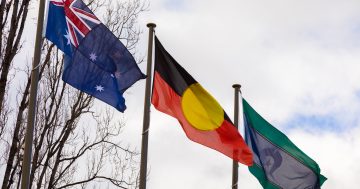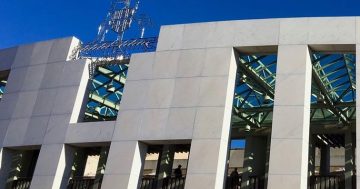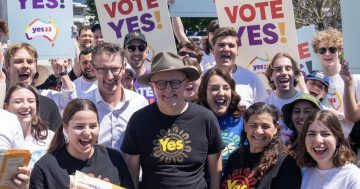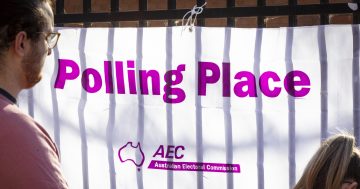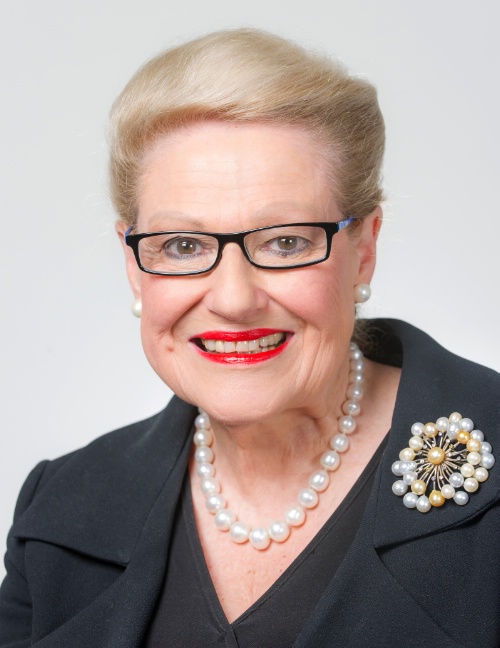
Former Coalition Speaker of the House Bronwyn Bishop says the Voice is dividing the nation. Photo: File.
Historical fearmongering may be what’s behind Prime Minister Anthony Albanese’s hesitancy about discussing treaty-making with First Nations, despite the courage it’s taken him to mount the Voice referendum.
Opposition Deputy Leader Sussan Ley implied last week that treaty-making with Aboriginal and Torres Strait Islander peoples posed some sort of a threat to national sovereignty.
She’s left it to the conservative fringe to make the hysterical claim that the Voice is a misguided left-wing plot that will fragment the nation, such as disgraced ex-Liberal MP Bronwyn Bishop’s irrational comments that it is dividing Australia.
It’s taken me back to my first job in the NT.
“They’re stealing our rock!” was one screaming headline in the NT News during the protracted negotiations over handing back Uluru to the Mutitjulu traditional owners.
It was 1984, and traitorous ‘white advisers’ were to blame for stirring up the Aboriginal community to deprive Australians of ‘their’ national tourist attraction, Country Liberal Party politicians warned.
The message was clear: the Mutitjulu were too ignorant to make their own decisions and they certainly weren’t entitled to good lawyers.
The scaremongering over the Uluru hand-back was as absurd as it was racist.
The world-first joint national park management arrangement negotiated by the Hawke government proved that agreement-making with First Nations is not only possible, but benefits all Australians.
We’ve since seen the model replicated in Kakadu and Nitmiluk national parks, and regional agreements have been negotiated in the Torres Strait and elsewhere.
So what drives the conservative fear of treaties?
Back in the 1980s and 90s, people spoke of Aboriginal ‘self-determination’ rather than treaties when talking about ending First Nations disadvantage.
Self-determination is a well-recognised universal human right of all peoples. We exercise it every time we enter a polling booth to vote and in many other ways individually and as a nation.
It was a term the Whitlam government began using in 1972 to replace discriminatory assimilation and integration policies that had been imposed on First Nations.
Giving First Nations people a decisive voice in shaping the policies and programs that govern their lives was central to the work of the Aboriginal and Torres Strait Islander Commission (ATSIC) and the Reconciliation Council in the 1990s.
Both bodies were abolished when the Howard government came to power in 1996 amid the struggle over how native title would work after the Mabo judgment. Howard banned the term ‘self-determination’ from the APS lexicon.
ATSIC had wanted to expand its council to ensure more First Nations representatives would be involved in negotiations on native title legislation.
First Nations that secured native title to their land would organise to mount an insurrection to try to secede from Australia, so the conservative trope went.
This was never proposed and is frankly ludicrous. It was a fear based on an outdated, black letter law interpretation of ‘self-determination’ related to decolonisation post-WWII.
First Nations people around the world had begun calling for self-determination but through ‘internal’ treaties or agreements that allowed peoples to co-exist within a sovereign state.
Anyone truly listening to First Nations then would have understood their aspirations. They were clearly set out by the Reconciliation Council. Howard infamously chose to berate delegates at its 1996 conference rather than listen.
Despite successive governments focusing on so-called ‘practical outcomes’, the huge First Nations disadvantage gap continues. Why? Because at every turn their call for their basic human right to self-determination has been denied. It’s stymied progress for decades.
And so history repeats. The conservative campaign tactic, then and now, is to persuade voters to stick with the status quo by confusing and scaring them with disinformation about a First Nations peace treaty.
These days it’s ‘privileged blacks’ that are purportedly stirring up the ‘poor blacks’, a divide and conquer tactic to defeat self-determination and maintain government control over First Nations.
Labor’s concern about widening the discussion beyond the Voice referendum may be driven by our bitter history, which has seen First Nations aspirations for self-determination repeatedly fail. Or maybe it’s all about sticking to a campaign strategy.
Whatever, the Voice referendum is a huge political risk. It’s taken Albanese a lot of courage to run this when so many before him have backed off, including Bob Hawke.
In 1995, Hawke promised Makarrata, a peace agreement much like a treaty. It didn’t happen. Albanese has revived the promise by funding the Makarrata Commission to start talks.
To slay the anti-Voice fearmongering we need to talk openly about the political history that has brought us here, and not be afraid of voting Yes to our First Nations’ human rights right to self-determination.
Original Article published by Deb Nesbitt on Riotact.


